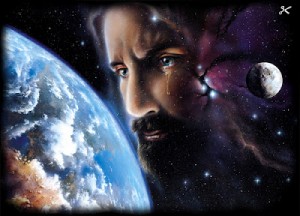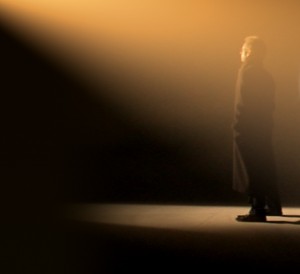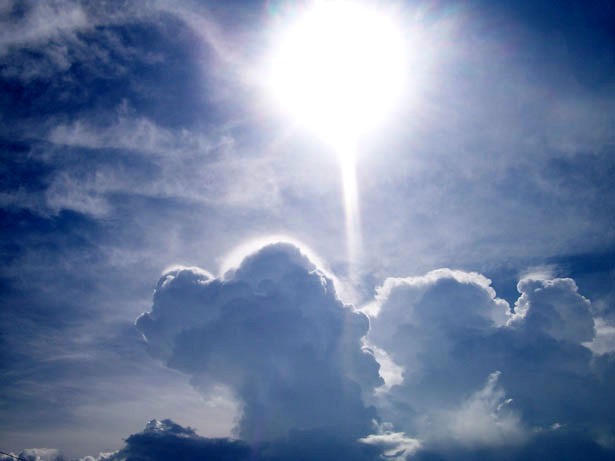One of the best Paul Newman movies is a western called ‘Hombre.’ There’s a memorable scene in which a beautiful, middle-aged woman is tied to a post in the desert heat, as the Newman character (a white man captured by Apaches as a boy and raised as one of them) watches with others pinned down in a cabin on a hill above as she slowly dies.
 Hombre (Newman’s character) is the only one who really sees what’s going on with the ‘good people’ and the ‘bad guys,’ and acts decisively. But before he rescues the woman, two characters with him in the cabin, one of them the husband of the woman, have this exchange.
Hombre (Newman’s character) is the only one who really sees what’s going on with the ‘good people’ and the ‘bad guys,’ and acts decisively. But before he rescues the woman, two characters with him in the cabin, one of them the husband of the woman, have this exchange.
First man: “Where is God?” Husband: “There is no God.” First man: “And no hell either?” Husband: “Oh, there’s a hell alright.”
The underlying belief of the theist is that God is a separate being, ‘the creative source of man and the world who transcends and yet is immanent in the world.’ The underlying belief of the atheist is that there is no God; there are only projections that humans invent in cultural contexts.
Both theism and atheism share the same core view that chaos is the essential nature of the universe, and that either God in the form of man, or man in the form of God, bring order to chaos.
In actuality, it’s exactly the opposite of ancient and modern man’s projections and fears: the world is chaos, while nature is order.
But if God is neither an objectified being, nor what each culture (or individual) makes of it, then what is God? Is the universe conscious? That is, does awareness exist independently (but not separately) of complex brains that have evolved on this and presumably other planets in the universe?
Such questions are heresy to both theists and atheists, to the conventionally religious and the conventionally secular. They’re also senseless to most scientists, who dogmatically insist that the human brain is the happenchance center of creation, and that awareness could not possibly exist in nature beyond the mind of man.
They’re also senseless to most scientists, who dogmatically insist that the human brain is the happenchance center of creation, and that awareness could not possibly exist in nature beyond the mind of man.
Few scientists would argue that a dynamic order infuses and suffuses the universe, and is inseparable from it. But even fewer philosophers would suggest that beyond knowledge and knowing, there is an inseparable God inextricably related to this order.
A human is a creature of thought; a human being is a being of awareness. Whether blueprints for a suspension bridge, or belief systems of organized religions, there is nothing sacred in thought’s fabrications.
Disposing of the childishness of organized religion by denying the possibility of sacredness beyond the mind of man is throwing the baby out with the bathwater. The idolatry of belief systems, including the concept of a monotheistic God, is being replaced by the idolatry of thought, venerating reason and science above all else. So theism/atheism are mirror images of the each other, flip sides of the same coin.
The irredeemable flaw of theism is that it projects the separateness and control of the human mind (the essential principles of symbolic thought) onto a ‘Supreme Being’ that created everything and stands apart from it.
The irredeemable flaw of atheism is that it assumes there is no greater intelligence than thought and reason, and that the mind of man is the maker of all meaning.
 Thus theists and atheists work together in a perverse and unconscious way to promote the darkness and enslavement of the human mind.
Thus theists and atheists work together in a perverse and unconscious way to promote the darkness and enslavement of the human mind.
There are two clear movements—the movement of darkness, and the movement of negation of darkness in meditation (and with it the awareness of the sacred) for the few individuals who understand how to initiate it.
There is no duality between these two movements, because the movement of darkness ends in the individual, if only for a few timeless minutes, when the movement of negation in meditation begins.
But is there a larger potential movement of intelligence in human consciousness, flowing from negation in meditation in the individual?
Certainly there are periods of human history, such as now, when there appears to be only the movement of darkness. (There is the movement of negation in meditation in the rare individual, but that doesn’t have much effect on consciousness as a whole.)
At such times, a third movement in human consciousness—of people questioning and igniting insight together—is essential, but as things are, that’s only a potentiality and not an actuality.
True questioning together, and shared insight flowing out of it, is the third potential movement, but it isn’t happening anywhere as far as I know. It could awaken at anytime, but despite such shticks as ‘insight dialogue’ and ‘meditative inquiry,’ insight is not being ignited to a significant degree with people questioning together.
The movement of negation in meditation generates the stillness, emptiness, and nothingness in which all being is, and from which the new human being arises.
One has to keep inquiry going within oneself to be capable of awakening insight with others. Questioning with others generates insight and understanding, the basis of true cooperation, and the wellspring of a new culture and civilization, whenever the breakthrough occurs.
Martin LeFevre

